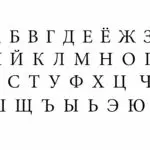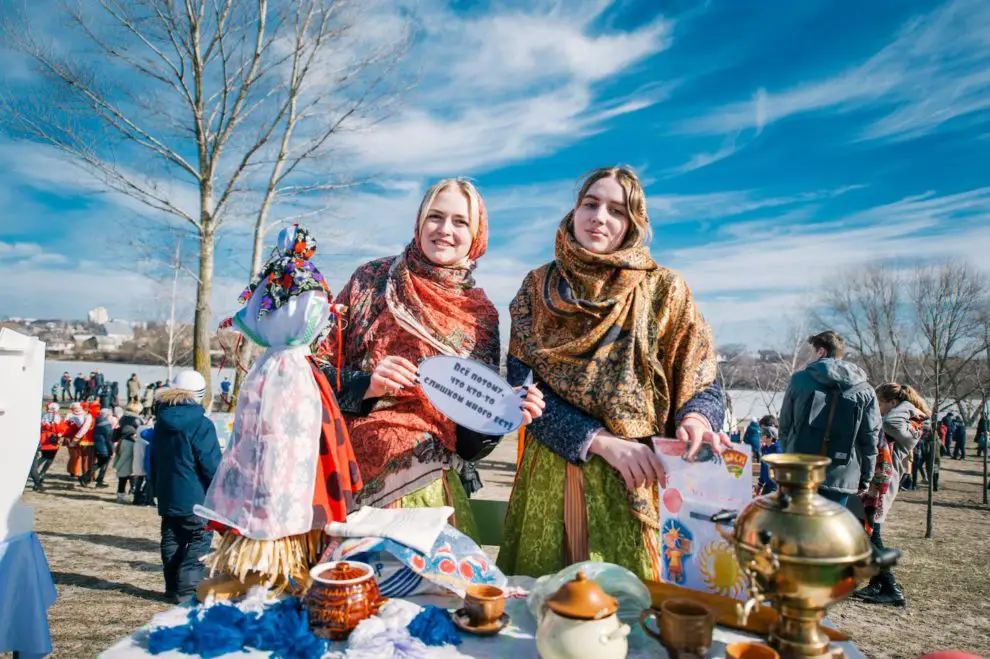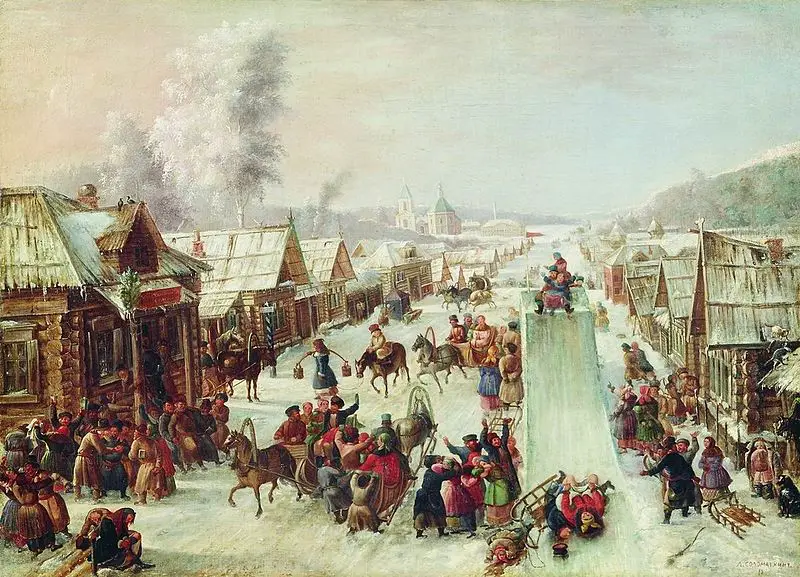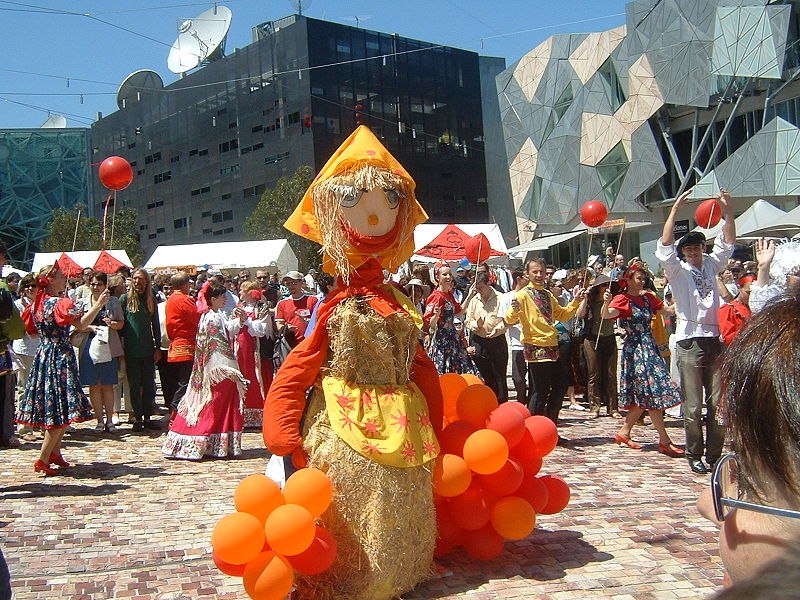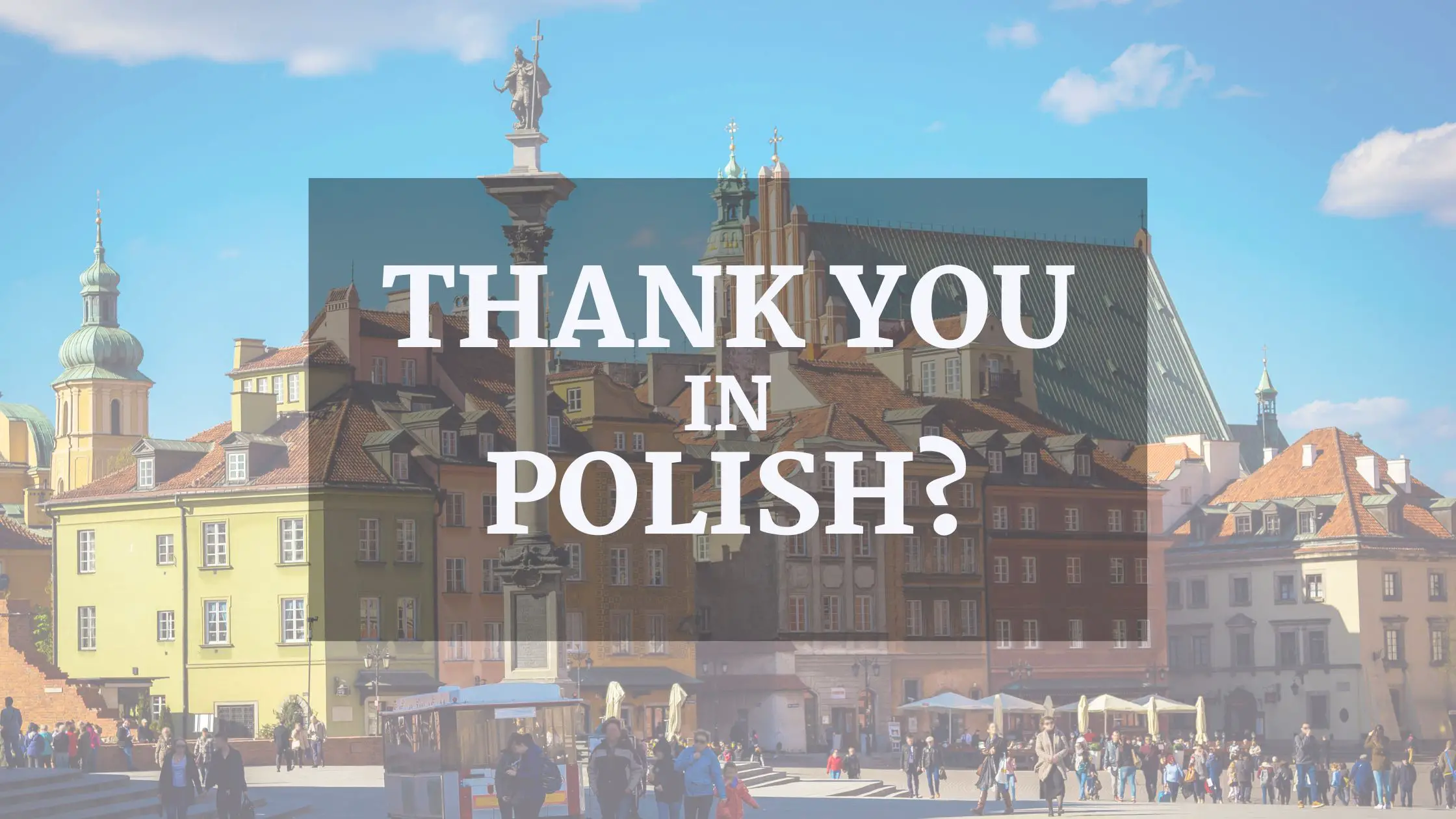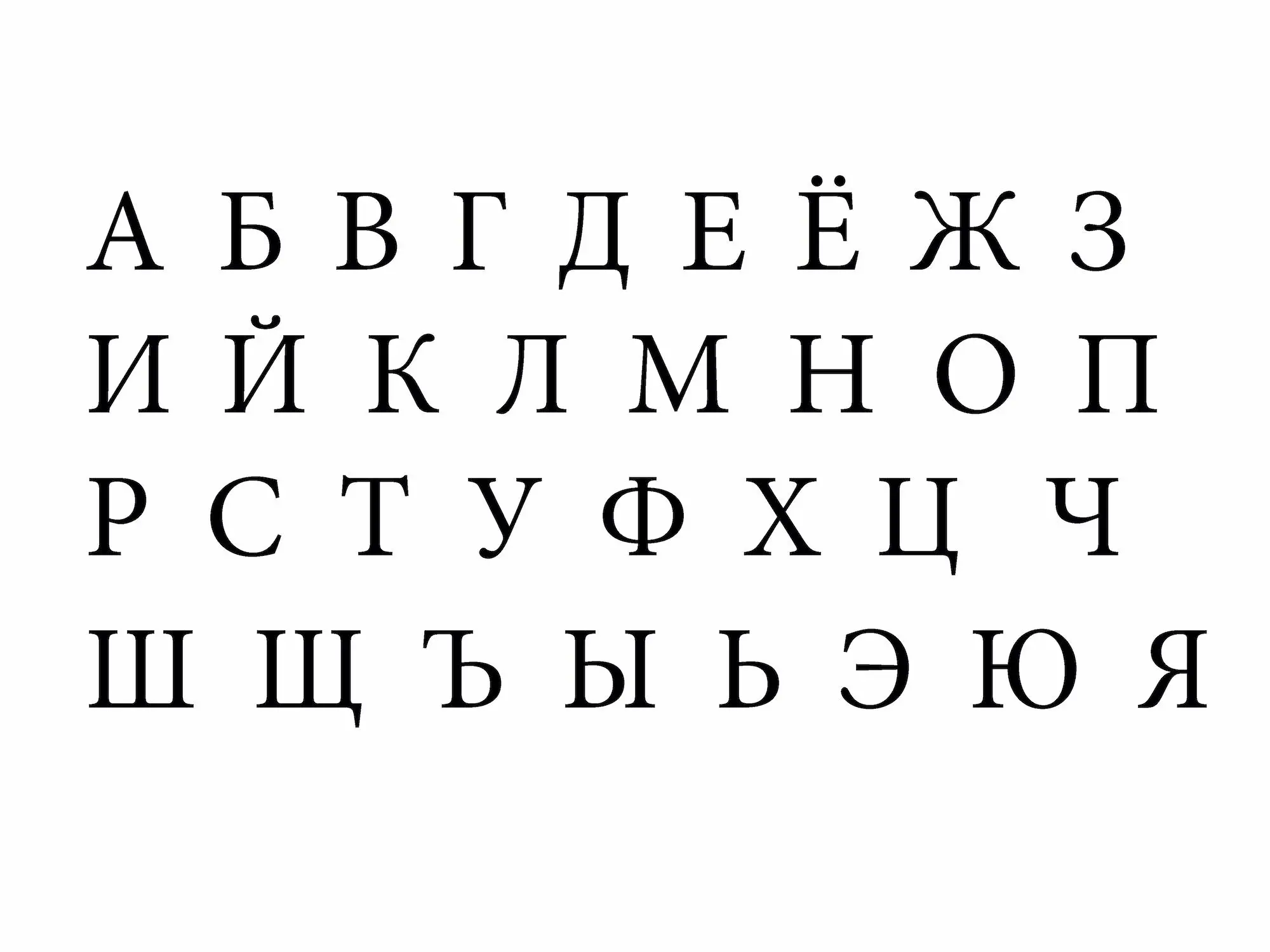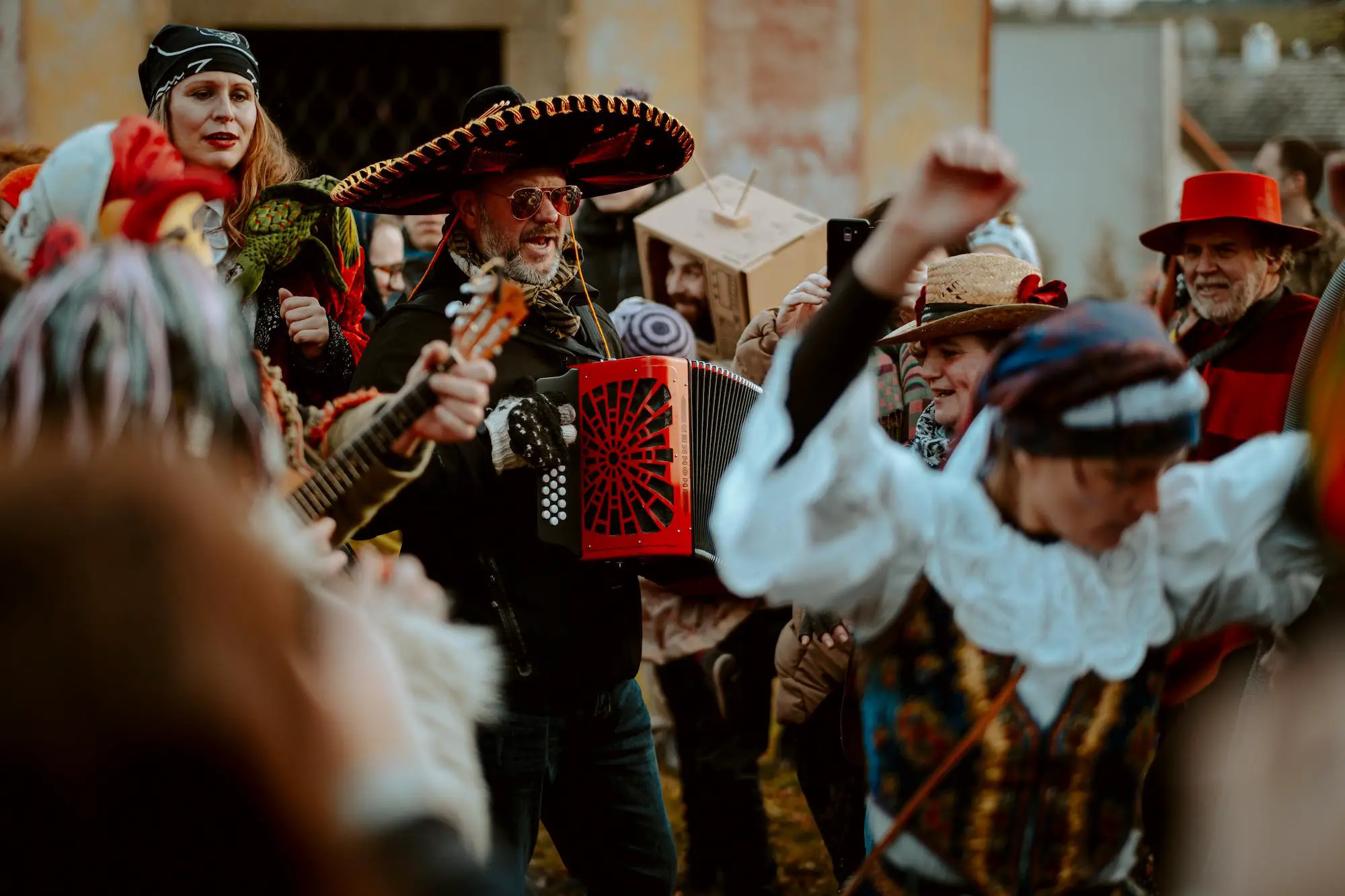Maslenitsa or Pancake week is a Slavic religious and folk holiday which has its origins in both pagan and Christian traditions.
In Slavic mythology, Maslenitsa is a welcoming of spring or the celebration of winters end.
Originally, the pagan festivities were held to honour the pagan deity Veles (or Volos also), the patron of cattle and farming. People associated him with a bear, or leshy (wood-goblin), therefore, the bear was a sacred animal possessing magical healing power. Some even thought of a bear to be a creature stronger than the Devil himself. Dancing like a bear around the house was supposed to protect it from burning down.
In Christian tradition, Pancake week is celebrated during the last week before Great Lent (the most important fasting season in the church year in Orthodoxy) or the 7th week before Orthodox Easter.
Pancake week is also the last opportunity to consume milk, cheese and other dairy products before Lent which also excludes parties, secular music, dancing and other distractions from the spiritual life.
Maslenitsa is traditionally a family event with traditional performances, competitions and games. There is music and of course a lot of food with the quintessential Maslenitsa delicacy: blini (pancakes).
Blini are Russian pancakes, and they are essential to the celebration of Maslenitsa. Said to symbolize the sun—being warm, round, and golden—they are an appropriate warning to the lingering cold weather. Blini are given to friends and family all through the week and are topped with caviar, mushrooms, jam, sour cream, and of course, lots of butter.
Pancakes also symbolize birth and death; in old Russia a pancake was given to a woman in labour, and is a ritual funeral repast in many homes.
Maslenitsa hasn’t been celebrated for 85 years in Russia but in 2002 it’s been officially organised in Moscow. It quickly spread around the world and now there are yearly Maslenitsa festivals in cities from London to Melbourne.
For a traditional blini recipe you can click here or here.






